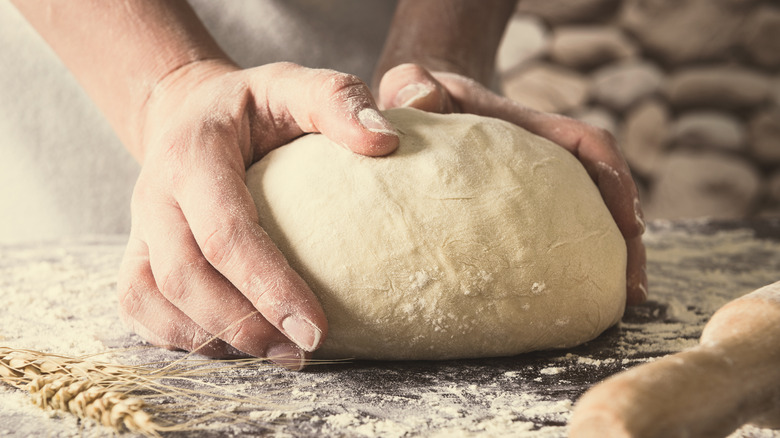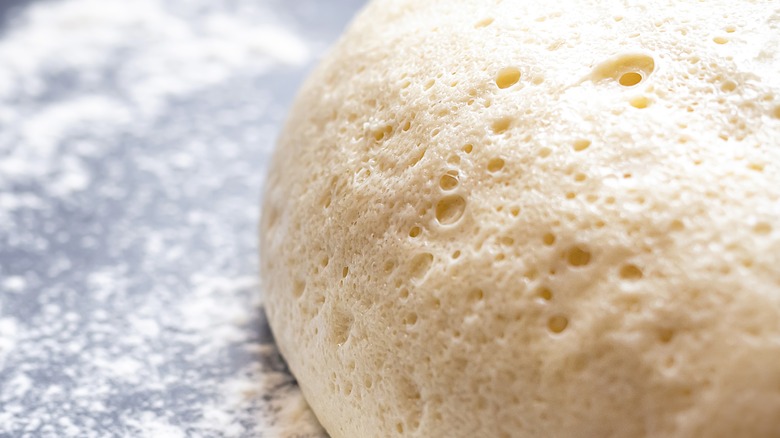Is It Okay To Refrigerate Bread Dough?
Bread, any way you slice it, demands to be enjoyed. In the way its crust crackles under teeth and steam whisps from the soft, pale crumb, bread has this way of enchanting all human senses from sight to smell, from sound to texture. Perhaps it's because of how ancient bread is, about 14,000 years old as reported by NPR. Humanity has developed right alongside this foodstuff since before the written word. Craving bread might very well be as inherent to humanity as language or hunting and gathering.
Thanks to our hearty obsession with bread, we've developed quite a few different kinds over the millennia (understatement of the century, we know). Today, we have everything from phyllo to puff pastry, and sourdough to banana bread. But according to Sourdough Supplies, despite the wide variety of bread goods gracing kitchen tables today, we can (at least attempt) to split them into two categories: leavened and unleavened.
Most of the bread that we cut into slices for sandwiches or throw on top of our French onion soups is what we'd consider leavened bread, which tends to be light, and is made with yeast, dairy, and fat, whereas unleavened bread is usually made with flour, water, and salt and is dense. When making leavened bread dough, it needs to ferment and rise, and most people put their dough in a warm space to do so, but what if we told you to put it in the fridge?
The slower the rise the better the bread
Leavened bread dough traditionally rises when yeast eats the sugar in the dough and releases gas (via Dixie Crystals). This process happens quickly when the yeast is warm, so often people knead their bread dough and then let it sit in a warm spot for a few hours before baking, however, you can store your bread dough in the refrigerator instead, and it will taste all the better for it.
According to Bake, the slower the fermenting process, the better the bread will be. It takes time for the flavors of the grain to open up, so the longer you can let your dough rise in a cold temperature (let it be noted that we said cold, not freezing) before baking, the more flavor it will take on. This rule doesn't apply to every kind of dough, especially bread made with a load of sugar, but if you're looking to make French bread or sourdough, this method will enhance its flavor, per Cultures for Health.
King Arthur Baking recommends that after you finish making your bread dough, let it ferment in the refrigerator overnight or for 8-12 hours. Leavened bread usually has two rises and luckily, you can cold ferment your dough during the first or the second rise to allow the flavors time to develop, but don't attempt both rises in the fridge.

